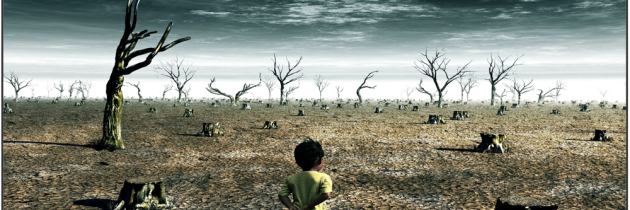Climate change: warm words and cool waters
Last week’s report that the current “pause” in global warming could be linked to cyclic cooling in the Pacific will be interpreted by climate sceptics as evidence that global warming isn’t happening, and by politicians as a reason to forget about climate change and carry on with business as usual. Both responses would be dangerously wrong.
There is no serious argument within climate science about the link between carbon dioxide levels and temperature. Between 1970 and 1998 the planet warmed at an average of 0.17C per decade, and from 1998 to 2012 at 0.04C per decade. Carbon dioxide levels in the atmosphere, however, continued to rise and are now higher than at any time in the last 800,000 years. Twelve of the 14 warmest years on record have occurred since 2000; the last two years have been marked by catastrophic floods in Australia and record-breaking temperatures in the US; and the loss of north polar ice has accelerated at such a rate thatclimate modellers expect the Arctic Ocean to be routinely ice-free in September after 2040.
There is, however, a serious debate about why the observed temperatures have not kept pace with computer-modelled predictions and where the heat that should have registered on the global thermometer has hidden itself. One guess – supported by some sustained but still incomplete research – is that the deep oceans are warming: that is, the extra heat that should be measurable in the atmosphere has been absorbed by the sea. This is hardly good news: atmosphere and ocean play on each other, and any stored heat is likely to be returned to the atmosphere sooner or later, in unpredictable ways. The real lesson from the latest finding is that there is a lot yet to be understood about how the planet works, and precisely how ocean and atmosphere distribute warmth from the equator to the poles.
The other message is that more warming is on the way. This is because the planet has still to experience the consequences of greenhouse gas emissions of 20 years ago or more. Just as the gas flame under the kettle takes a few minutes to warm the water, so the additional energy put into the atmosphere takes a decade or two to make itself felt. That is why climate modellers who have been puzzled by the lower-than-expected rise in temperatures have also warned that extremes of heat will increase in the next decade or two, whether or not governments start to reduce emissions.
But they also warn that if the world goes on burning coal, oil and gas at ever-increasing rates then by the second half of the century continents could move to a new climate regime in which the coldest summer months will be substantially hotter than the hottest experienced today. The news is not reassuring, and complacency is not an option.



